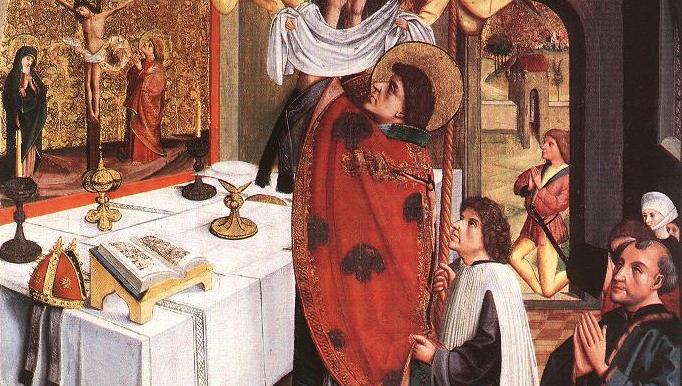After reading (lectio) the passage of scripture and meditating (meditatio) on it, the third step of lectio divina involves praying (oratio) to God and relating everything you have received back to Him. It means pouring out your heart to God, not leaving any stone unturned.
[featured-image single_newwindow=”false”]
This is often the easiest step in lectio divina, as it involves relating to God all that is troubling you and asking Him for guidance.
Guigo the Carthusian (the monk who formalized lectio divina) had this to say about oratio:
“Prayer is a devout desiring of the heart to get what is good and avoid what is evil… [After meditating on God’s word] we see that to the knowing or to the feeling of this wisdom we may not come nor reach by ourselves, and the more we think to travail to climb there, the more we see what the Godhead does, then we see our strength and our intelligence are nought, and we begin to know ourself, and as a poor needy wretch we humble ourself and fall down meekly with a lowly heart to pray, and say,
‘Lord, you will not be seen, but by those who are clean of heart. I have done what is in me to do, read and thought deeply and searched what it is and in what manner I might best come to this cleanness that I might somewhat know you. Lord, I have sought and thought with all my poor heart; and, Lord, in my meditation the fire of desire kindles to know you, not only the bitter bark without, in feeling and tasting in my soul. Lord, this worthiness I ask not for myself, for I am wretched and sinful and most unworthy than all others. But as much, Lord, as the puppy eats of the crumbs that fall from the board of the lord, I ask of the heritage that is to come one drop of the heavenly joy to comfort my thirsty soul that burns in love-longing to you‘. (Scala Paradisi, emphasis added)
In this step of lectio divina, we take the insights that God has given us in the previous two steps and apply them to our own life. We see our own sinfulness and failures and ask God for help to overcome them.
It is also the time to ask God for extra assistance if we were unsure of the passage and did not understand it or what God was trying to tell us through it.
This period of prayer can be as informal as you like. There is no formula or correct prayer to say. All that is necessary is an honest heart that empties itself before God. Above all things, do not be afraid to relate anything to God.
God wants to know who you are and what burdens are on your heart. If the scripture passage brings up a past hurt, bring it to God.
Jesus said, “Come to me, all who labor and are heavy laden, and I will give you rest” (Matthew 11:28).
Let us then return to our passage from past few weeks and practice the art of prayer:
And he said to his disciples, “Therefore I tell you, do not be anxious about your life, what you shall eat, nor about your body, what you shall put on. For life is more than food, and the body more than clothing. Consider the ravens: they neither sow nor reap, they have neither storehouse nor barn, and yet God feeds them. Of how much more value are you than the birds! And which of you by being anxious can add a cubit to his span of life? If then you are not able to do as small a thing as that, why are you anxious about the rest? Consider the lilies, how they grow; they neither toil nor spin; yet I tell you, even Solomon in all his glory was not arrayed like one of these. But if God so clothes the grass which is alive in the field today and tomorrow is thrown into the oven, how much more will he clothe you, O men of little faith! And do not seek what you are to eat and what you are to drink, nor be of anxious mind. For all the nations of the world seek these things; and your Father knows that you need them. Instead, seek his kingdom, and these things shall be yours as well.
“Fear not, little flock, for it is your Father’s good pleasure to give you the kingdom.” Luke 12:22-32 (RSV-CE)
What stirs in your heart? What burdens does this passage bring to light?
Bring everything to God and ask Him for help.
Read the Entire Series:
- The Second Step of Lectio Divina: Christian Meditation
- The First Step of Lectio Divina: Slow Down!
- What is Lectio Divina and Why Bother?
- Breathe Life into the Divine Office with C.S. Lewis’ Reflections on the Psalms
- An Introduction to the Four Volume Breviary
- Beginner’s Guide to Praying the Liturgy of the Hours
- Physical Breviary vs. iBreviary: How is a Person to Pray?
- The Digital Breviary: A Guide to Praying the Divine Office in a Digital World
- 5 Reasons to Pray the Divine Office Daily
- 5 Practical Ways to Prepare for Mass
- How to Actively Participate in Mass
- 3 Ways to Imitate Jesus’ Vocal Prayer
- How to Pray Like Jesus: The Ultimate Checklist

